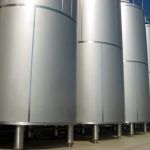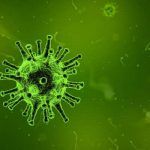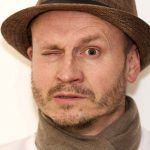350 million people worldwide suffer from depression according to the World Health Organisation (WHO). Many who are lucky enough to receive treatment find that recognised medications like Prozac have no effect.
Psilocybin (pronounced si-luh-sai-bin) appears to have real potential to at least ease the worst symptoms and enable sufferers to lead something like a normal life.
But (isn’t there always a ‘but’) psilocybin is currently illegal in the UK under the Misuse of Drugs Act. The Home Office puts it in the same category as heroin because it’s the psychoactive or psychedelic substance in magic mushrooms.
Does psilocybin really help with depression?
The case substantiating these claims for psilocybin is steadily growing. This recent excellent article in the Guardian newspaper presents a pretty comprehensive summary of the current status.
Ongoing research under license is currently ongoing, including at King’s College London and Imperial College London. The latter has opened a Centre for Psychedelic Research with stated objectives of helping to progress psilocybin as an approved drug for depression and exploring its use in other illnesses, such as anorexia.
What do magic mushrooms have to do with it?
Magic mushrooms are the variety that contains psilocybin. Few people realise what marvellous things mushrooms are. The study of fungi in general is a branch of biology called mycology.
This podcast with noted mycologist Paul Stamets is a fascinating revelation into the extent that mushrooms and fungi impact on our lives, our history and our future.
It’s only recently that science has taken a deep interest and is exploring their pharmacologically active compounds, which is quite a task given that there are about 5 million varieties.
The magic of mushrooms – Potential benefits to medicine
Science has yet to formally prove the potential benefits of many compounds and substances found in mushrooms. Anecdotal evidence and preliminary investigations indicate outcomes such as:
- Antiallergic
- Antiatherogenic (fights plaque forming on artery walls)
- Anti-inflammatory
- Antimicrobial
- Antitumor
- Antiviral
- Hepatoprotective (protects the liver from damage)
- Hypoglycemic (prevents low blood sugar levels as suffered by diabetics)
- Immunomodulating (suppresses or stimulates or the immune system to help the body to fight disease, infection & cancer)
The law and breakthroughs
Psilocybin mushrooms are not regulated by UN drug control treaties. In the UK, the Home Office has the final say. One does wonder if fears of potential alarmist headlines govern thinking there. Recently, a crop of industrial hemp was ploughed under after the grower’s license was revoked. That relates to cannabidiol and official uncertainty about how to proceed.
Colorado recently made possession and use of cannabis legal. In May 2019, Denver voted to decriminalise psilocybin. It’s still illegal but Denver police have been ordered to give it low priority. It’s illegal in Holland but the relaxed approach of the authorities permits “magic truffles” and many centres offer some form of psilocybin therapy.
Any UK authorised institution (e.g. medical research lab) can purchase a licence for £5,000 to perform legitimate investigations into psilocybin. It’s expensive, though, because manufacture is very limited. One gram can cost up to 100,000 according to the police and other drug law enforcement agencies.
Science and witchcraft
In her book Forensics: The Anatomy Of Crime, bestselling British crime thriller author Val McDermid traces the history of forensic science. In 1543 the Holy Roman Empire first introduced the equivalent of probable cause into criminal law as part of what became known as the Carolina Code.
That required judges to consult with surgeons in murder trials once the likelihood of a crime had been established and was the birth of what we now recognise as forensic medicine. It also authorised torture to extract confessions when required, and the burning of witches.
The point is that the early days of any worthwhile medical advance are sometimes muddied and coloured by fear, ignorance or other issues that seem relevant and important at the time. The hidden gem is apparent only after the passage of time.
The war on drugs, necessary though it is, has held up scientific exploration of many substances that hold out promise of alleviating many illnesses, both physical and mental. Research stopped in 1970 in the US when it was classified as a Schedule 1 substance there, the same as heroin. Only now is official recognition slowly permitting research.
What needs to happen
It would seem to make sense to downgrade Psilocybin from a Class 1 drug to something less criminal. That too would encourage a greater volume of research and could possibly increase the rate of manufacture to make it more affordable.
While nobody would suggest rushing through new medications without thorough testing and trials, there is a great sense of urgency to alleviate the terrible condition that is depression.
For further reading:
Medicinal mushrooms https://www.sciencedirect.com/topics/biochemistry-genetics-and-molecular-biology/medicinal-mushroom
Psilocybin Mushrooms Fact Sheet
References
FarmingUK (24 July 2019). Farmers destroy hemp crop after losing licence. Retrieved from https://www.farminguk.com/news/farmers-destroy-hemp-crop-after-losing-licence_53527.html
Jacobs, J. (June 2019). ‘They broke my mental shackles’: could magic mushrooms be the answer to depression? The Guardian. Retrieved from https://www.theguardian.com/science/2019/jun/10/magic-mushrooms-treatment-depression-aztecs-psilocybin-mental-health-medicine
Law Enforcement Action Partnership (LEAP) UK (May 2015). Magic mushrooms ‘less harmful than thought’. Retrieved from http://ukleap.org/magic-mushrooms-research/
Lindequist, U., Niedermeyer, T., and Jülich, W-D. (Sep 2005). The Pharmacological Potential of Mushrooms. Journal of Evidence-based Complementary and Alternative Medicine ( 2(3): 285–299). Retrieved from U.S. National Library of Medicine https://www.ncbi.nlm.nih.gov/pmc/articles/PMC1193547/
McDermid, V. (2015). Forensics: The Anatomy Of Crime. Profile Books
O’Hare, R. (April 2019). Imperial launches world’s first Centre for Psychedelics Research. Imperial College London. Retrieved from https://www.imperial.ac.uk/news/190994/imperial-launches-worlds-first-centre-psychedelics/
Stamets, P. (Nov 2017). Joe Rogan Experience #1035 – Paul Stamets (mycologist). Podcast retrieved from https://youtu.be/mPqWstVnRjQ
Wikipedia (July 2019). Legal status of psilocybin mushrooms Retrieved from https://en.wikipedia.org/wiki/Legal_status_of_psilocybin_mushrooms
World Health Organisation (2012). Depression, A Hidden Burden (flyer). Retrieved from https://www.who.int/mental_health/management/depression/flyer_depression_2012.pdf










